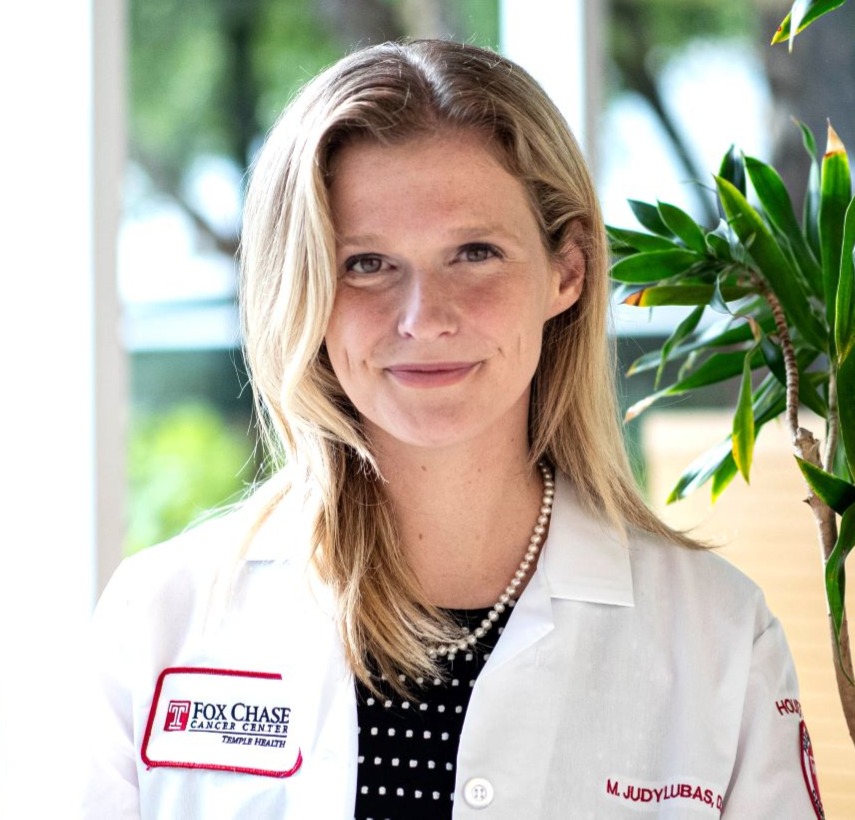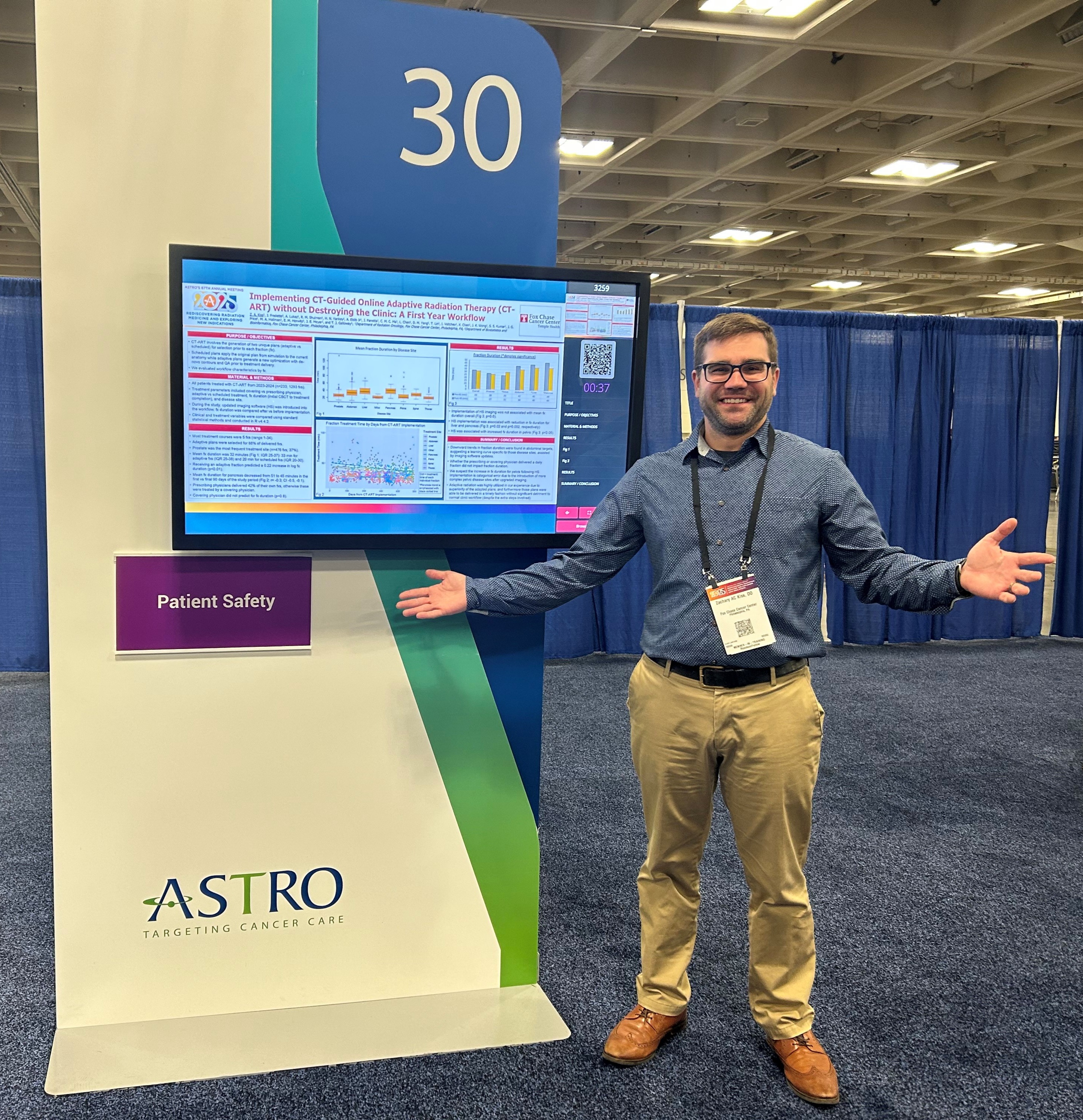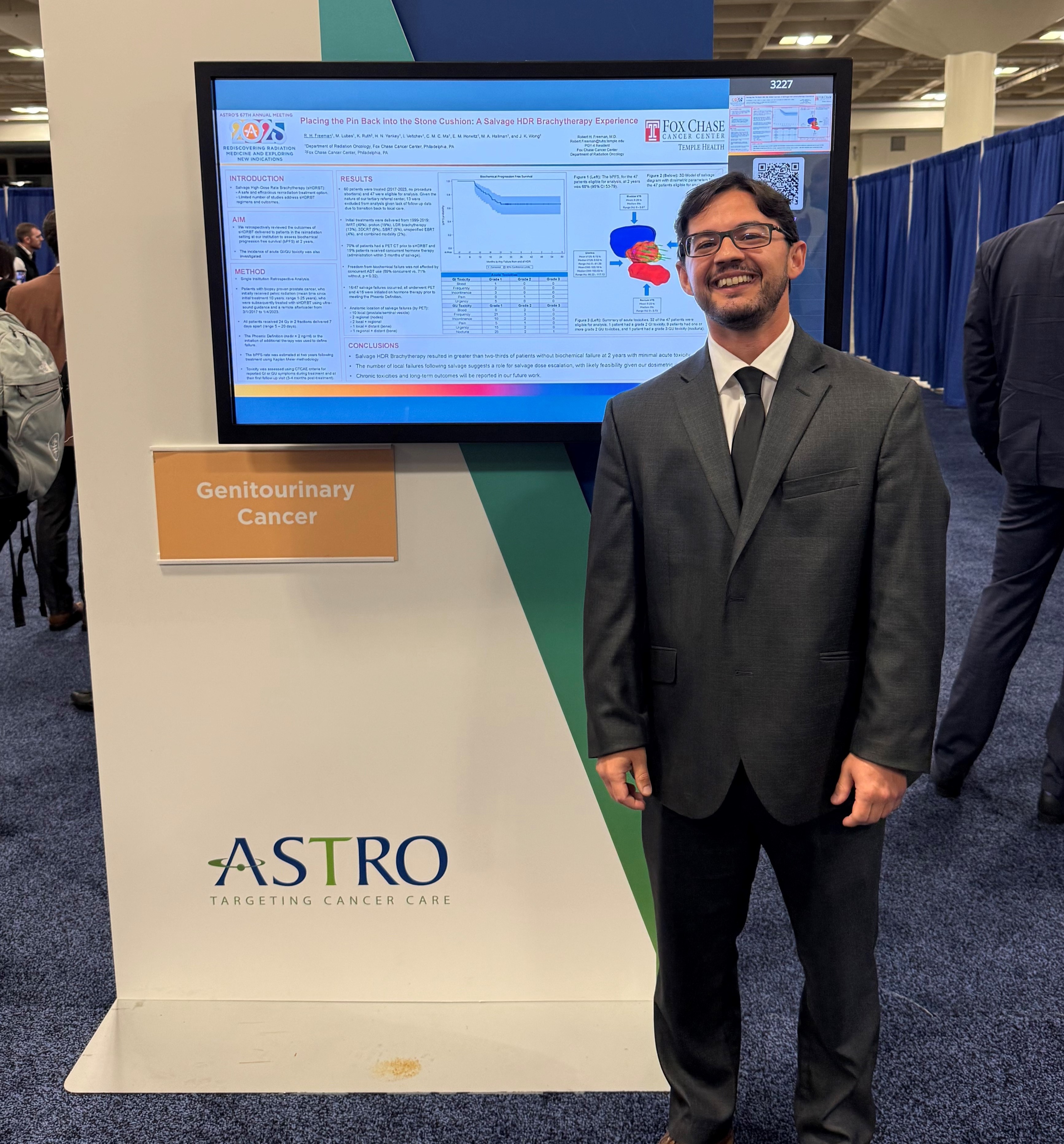

Moving sophisticated clinical ideas into the mainstream is a Fox Chase hallmark. Nowhere was that more evident than at the American Society for Radiation Oncology (ASTRO) 2025 Annual Meeting, in the city of the Golden Gate Bridge, where research from Fox Chase radiation oncology has moved the needle for adaptive radiation therapy and other essential modalities, demonstrating superior outcomes and less toxicity.
Joshua E. Meyer, MD, FASTRO, Vice Chair of Translational Research and a Professor in the Department of Radiation Oncology, was lead investigator of a study that examines how pulsed low-dose rate (PLDR) chemoradiation therapy can significantly reduce side effects while maintaining treatment effectiveness for patients with esophageal cancer and non-small cell lung cancer without compromising on efficacy. The results, presented at ASTRO 2025, mark an important step toward validating PLDR as a first-line treatment option before surgery. Read More
Dr. Meyer was also named a Fellow of the American Society for Radiation Oncology (ASTRO) at the 2025 Annual Meeting. Read More

Maryanne J. Lubas, DO
Maryanne J. Lubas, DO, a fifth-year radiation oncology resident at Fox Chase, under the leadership of Rebecca Shulman, MD Assistant Professor in the Department of Radiation Oncology, has discovered a new treatment option for patients with recurrent, inoperable retroperitoneal sarcoma by using CT adaptive stereotactic body radiation therapy (CTA-SBRT). An innovative modality can make repeat radiation not only possible, but safe—opening the door to long-term disease control. Read more

Zachary Kiss, DO
Zachary Kiss, DO, a fifth-year radiation oncology resident at Fox Chase, shared his research at ASTRO 2025 in two poster sessions that demonstrated the advantages of CT-ART versus traditional radiation planning. Dr. Kiss’s first study, “Implementing CT-Guided Online Adaptive Radiation Therapy (CT-ART) without Destroying the Clinic: A First Year Workflow,” broadly investigated workflow experiences during the first year of CT-ART to determine whether the custom planning for each patient disrupted clinic workflow.
A second study from Dr. Kiss, entitled “The Art of Adapting: Plan Selection Rationale in CT-Guided Online Adaptive Radiation Therapy (CT-ART),” examined the rationale for choosing adapted plans and whether the physician designing the daily adapted plan had also designed the originally scheduled plan. Important findings to understand and implement.

Robert Freeman, MD
Robert Freeman, MD, a fourth-year radiation oncology resident at Fox Chase, presented his poster titled “Placing the Pin Back into the Stone Cushion: A Salvage HDR Brachytherapy Experience,” demonstrating that Salvage HDR Brachytherapy (sHDRBT) is a safe and effective re-irradiation treatment for recurrent prostate cancer. Good news for millions of prostate cancer patients.


